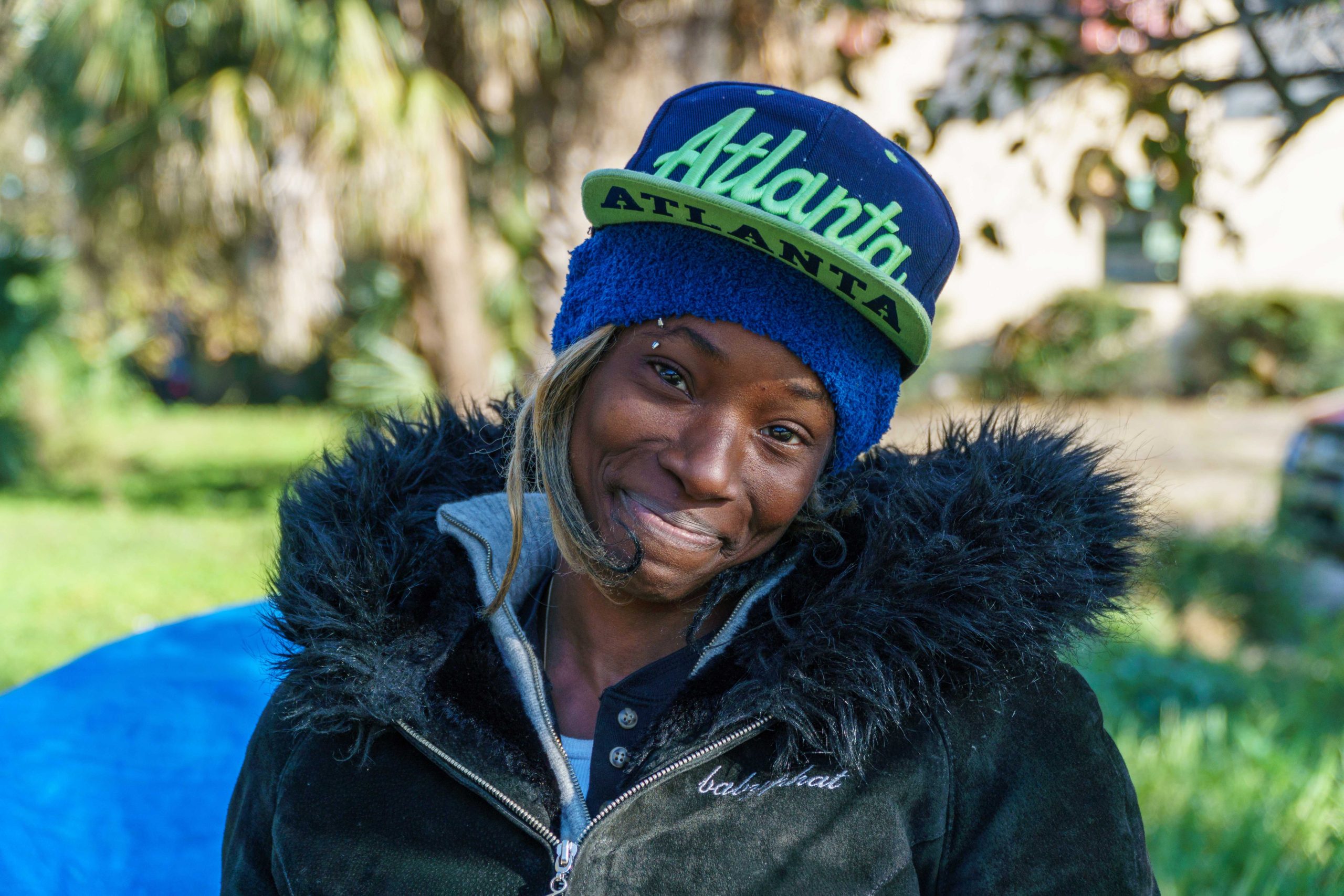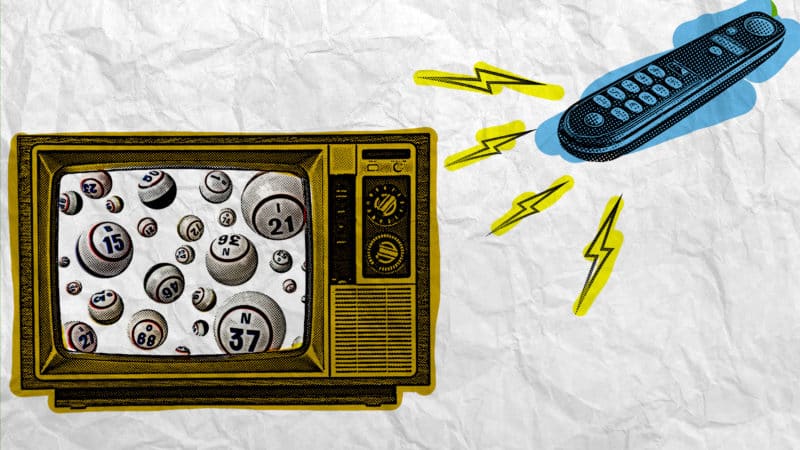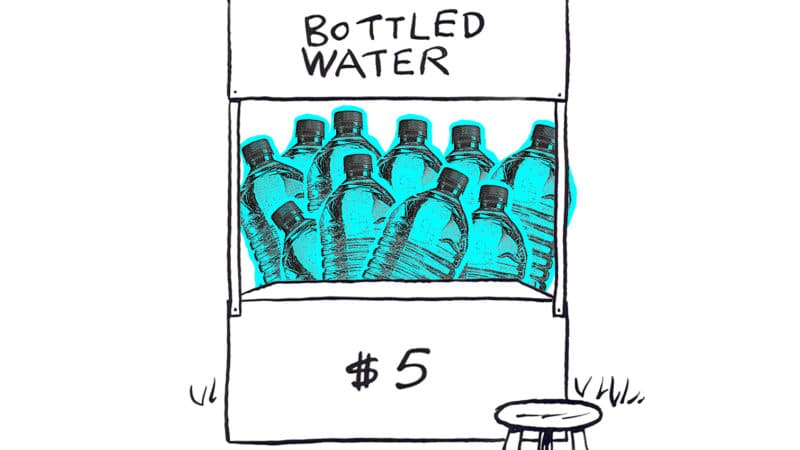An interview and a snapshot into the life and day of someone living on the streets of Jacksonville, Florida.
Photographs and writing by J-P Pesare
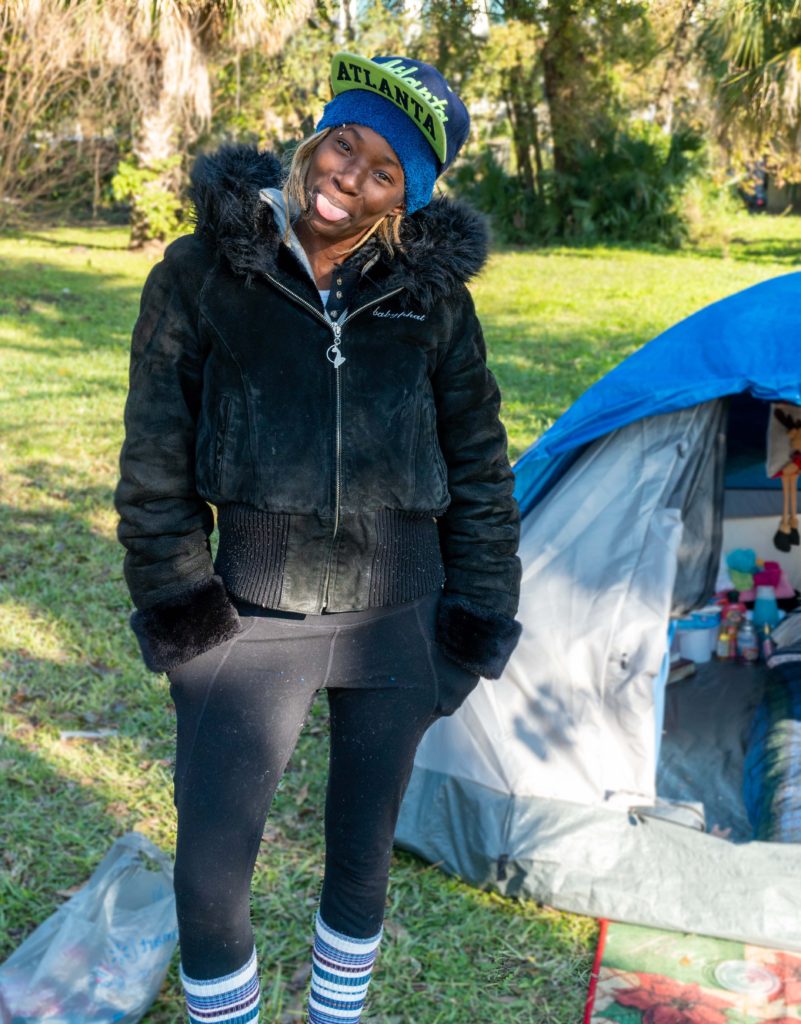
“Even if kids come from a good home, they can end up out here,” says Priscilla, 36, a woman currently experiencing homelessness in Jacksonville, Florida. “Parents have to pay attention to their children. Children need attention, and when they don’t get it, they will act out, like I did.”
Priscilla was born and raised in Atlanta, Georgia with a father who was an alcoholic — in and out of jail for domestic abuse — and a mother who was a drug addict. After spending time in foster care during her childhood, Priscilla was placed in her aunt’s custody at age 13.
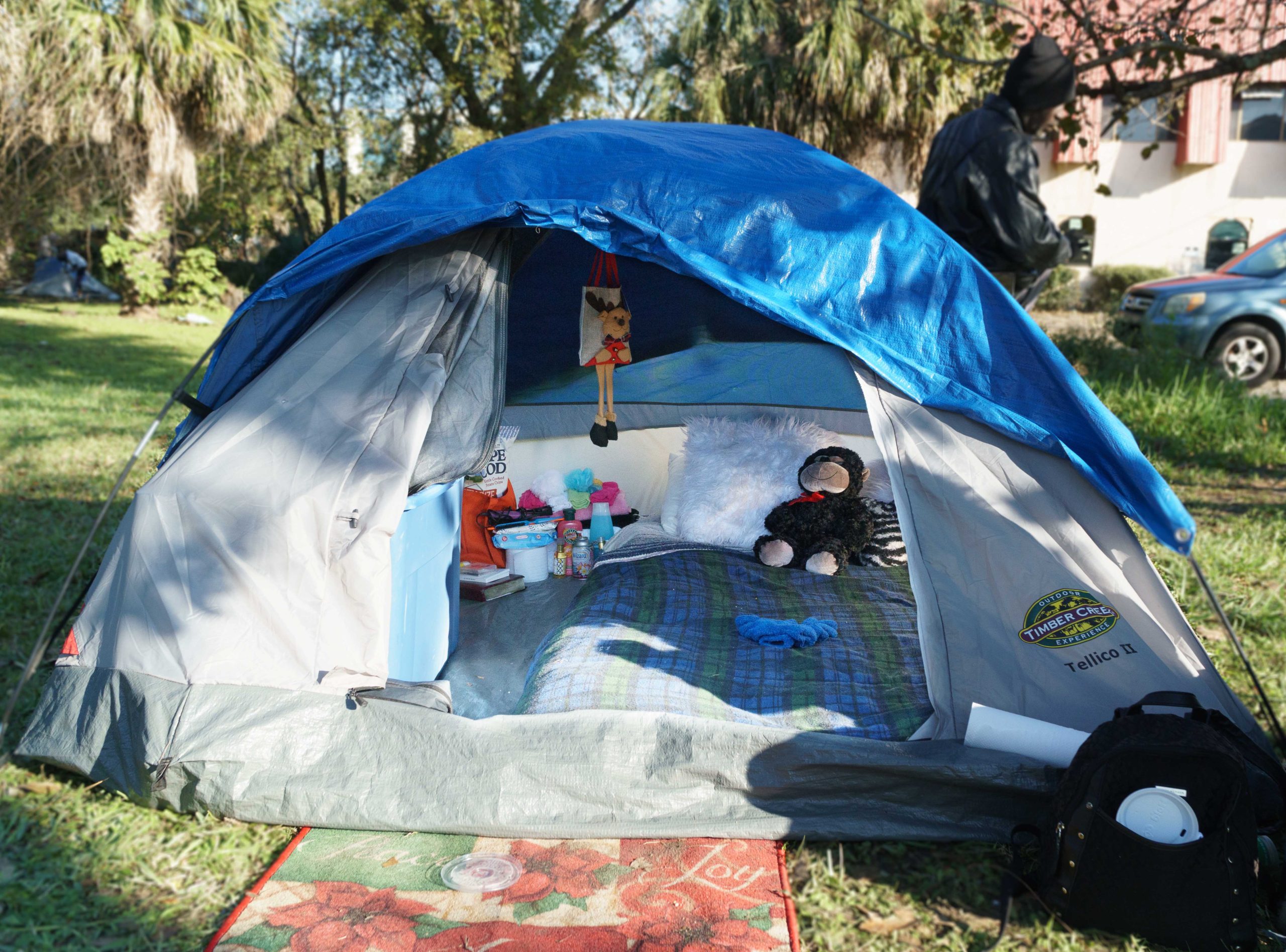
“‘If you are going to sleep with a boy, get paid for it,’” Priscilla’s aunt told her at 13 she says, teaching her the ins and outs of prostitution. “‘Washcloths cost [money].’”
After arrests for prostitution and escaping into drugs in her late teens, Priscilla found herself living on the street at 23. “There are strong-minded people, and then there are weak-minded people,” she says. “It doesn’t matter if you are living on the streets. If your mind is strong, you’ll find a way to make it through and do something with your life.”
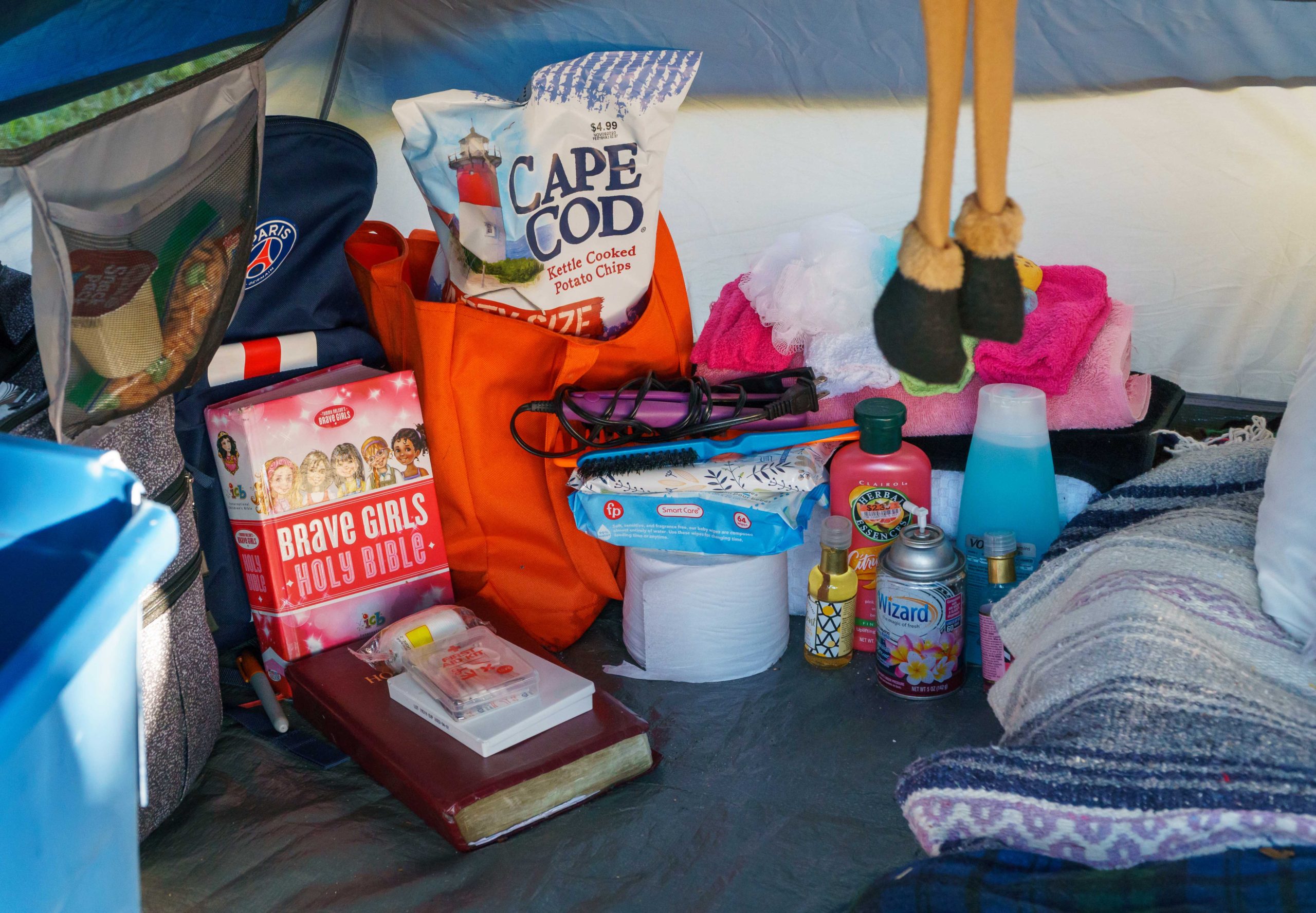
When shelters are full or she is denied entry, Priscilla lives in her tent in downtown Jacksonville. Inside, there’s a variety of food, beauty products, and supplies all neatly arranged and displayed — including a copy of the Brave Girls Holy Bible. She also has designs for a battery-powered kitchenette for those living in tents on the streets: “If [the government] would provide us with a power bank, we could put in things like a hot plate for cooking, a mini refrigerator, or even maybe a microwave.”
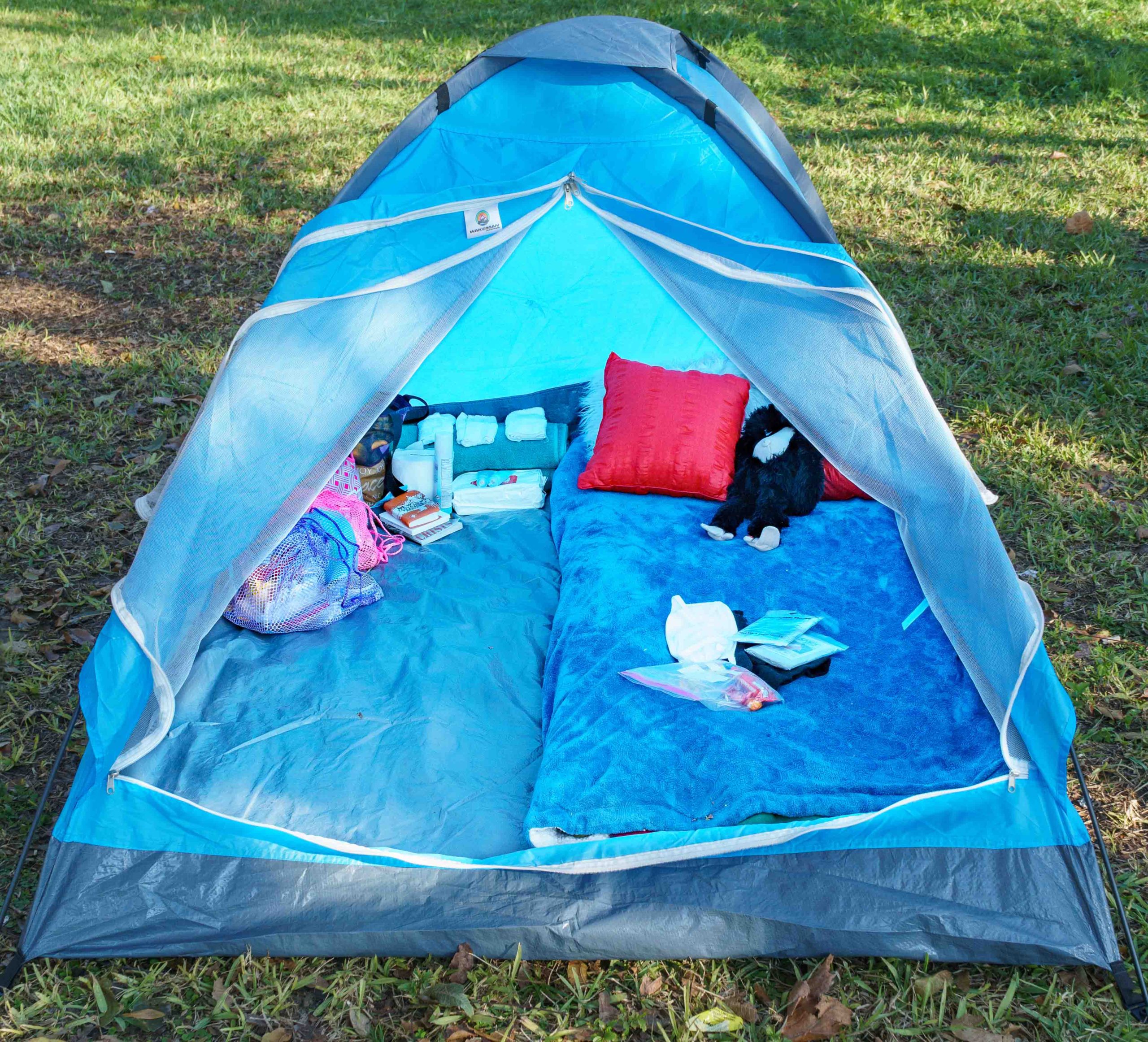
Next to the tent she sleeps in is another she’s set-up for renting out to anyone who needs a place for the night, complete with supplies like a facemask and a sleeping bag; recent nighttime temperatures in Jacksonville have dropped to 40 degrees.
The tent also doubles as a retail space as all the items inside are for individual sale. “There’s definitely a market out here,” she says. “If I’m given something that I’m not using, I can resell it for cash.” Priscilla uses that cash to pay for other items she needs and sometimes a hot shower and meals at a local mission, which can cost $10.
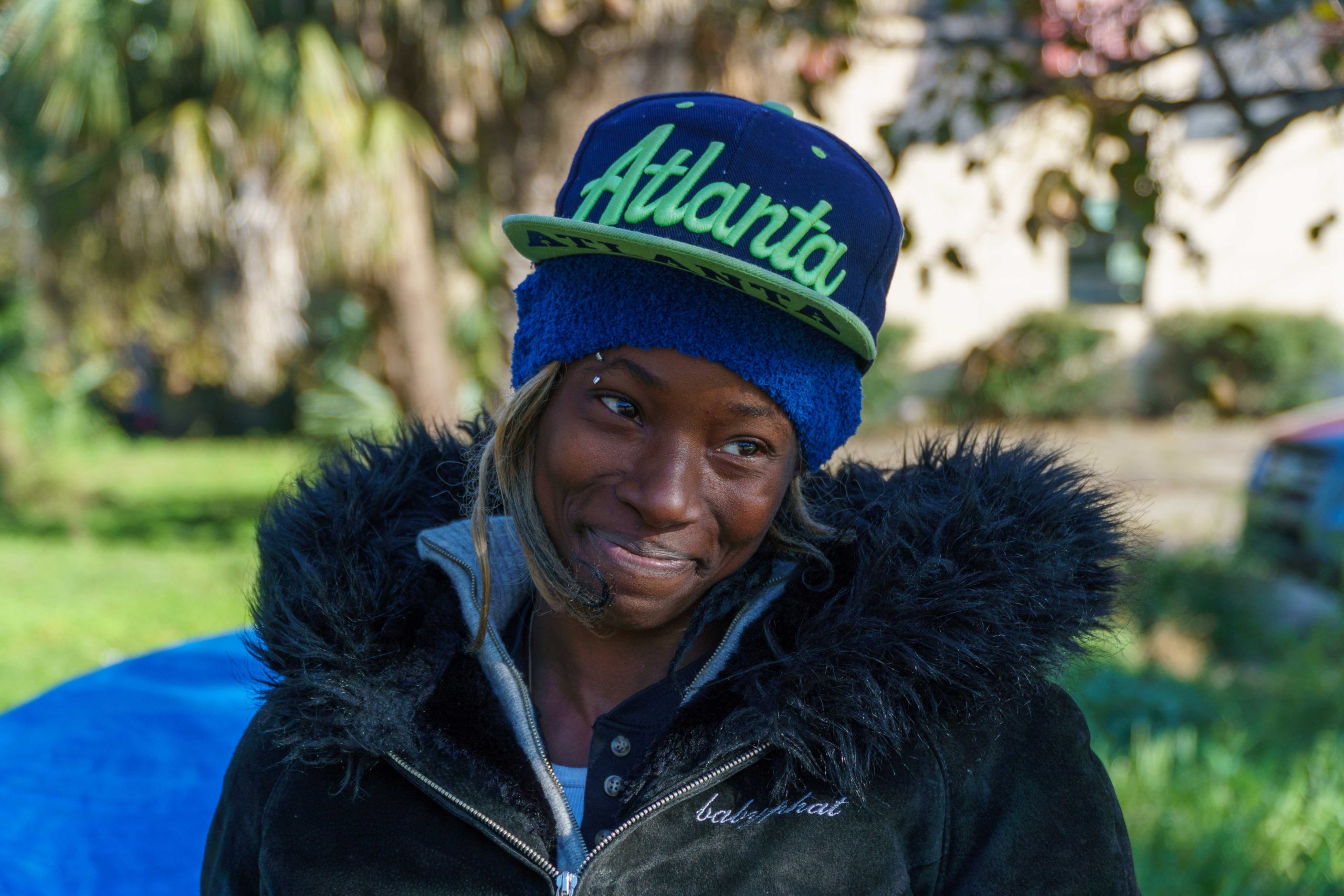
When asked about the problem of homelessness, she says she’s unsure what the solution might be, but thinks some people simply don’t want to help themselves: “I’ll take any job someone wants to offer. One time, somebody pulled up and asked if anyone wanted to help lay sod. So, I did it. It doesn’t matter if it only pays 50 bucks, that’s money in your pocket. You can either sit around like some of these people out here looking crazy, or you can actually go out and try to do something with your life. I’m hoping that someone will give me a chance.”
More of J-P’s photography can be found on his website at WindingPathPhotography.com, and his Instagram @WindingPathPhoto

